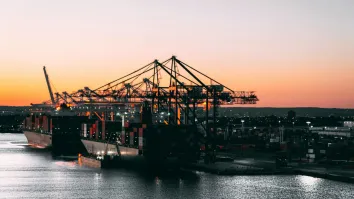
Here's why Philippines will remain bullish in 2013
It's now the 2nd fastest growing economy in Asia.
Nomura went to Manila to stress test its bullish outlook on the economy, which it forecasts to grow 6.4% this year, the second fastest in Asia after China. Nomura affirmed its positive forecast for Philippine economy by citing several positive signs.
Here's more:
Businesses oozing with optimism. CEOs attribute the strong business sentiment to sound monetary and fiscal policies, but most notably to the President's strong leadership and unswerving focus on integrity and corporate governance, which is ridding unnecessary red tape and costs.
We heard how the President has the political will to work with Congress to pass hard legislation; the unrelenting anti-corruption drive highlighted by the Chief Justice being impeached; and how the President has surrounded himself with a cabinet full of capable technocrats.
The upbeat business sentiment is manifesting itself in robust private investment.
Infrastructure – making in-roads.
After an initially slow phase, project roll-out under the public-private partnership program (PPP) has picked up over the last six months, and will likely continue to improve.
In the 2013 budget, infrastructure and other capital outlays are projected to increase by 17% (versus 9% for current expenditures).
The government continues to focus on stronger implementation, starting with the fast disbursement of funds and helping the recipient agencies to improve their capacity. Several public works contracts have been awarded late last year to facilitate more spending in the first two quarters of the year when it is the dry season.
Broader economic reforms to boost FDI.
Discussions have also recently picked up on the issue of relaxing the restrictions on foreign investment limits of key sectors including, utilities, trade, transport, and even practice of profession.
The National Economic and Development Authority (NEDA) is spearheading this effort, making strong arguments that these restrictions (1) are outdated, and (2) are not consistent with the creation of the Asean economic community in 2015.
Encouragingly, NEDA officials see more acceptance among the stakeholders and importantly leaders of both houses of Congress, which will play a critical role initiating reviews of these policies.
Fiscal measures – still plenty in store.
The Department of Finance (DOF) has earned a great deal of experience in the passage of the sin tax law in December amid strong opposition (the fact that the bill was in Congress for last 15 years is testament to the big challenge), giving the DOF in our view more confidence to pursue other difficult measures.
The DOF does not only view the passage as a means to generate more revenues, but also a 'good governance measure' which involved a more strategic approach to generating buy-in from the public and the legislators.



















 Advertise
Advertise







